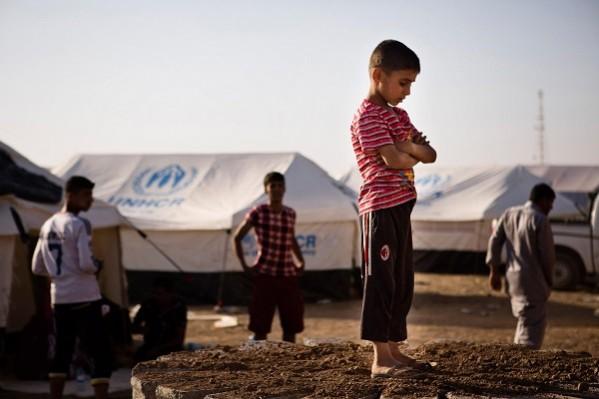
The business of America is business, after all. Former CIA director and US General, David Petraeus, just burnished that American credential when he said the Kurdish people can have their independent country when they start producing 800,000 barrels of crude oil per day.
American statecraft has always been burdened with accusations, mostly true, of treating political destinies of peoples with an eye on the pie.
Rudyard Kipling's 1889 poem 'The White Man's Burden' illustrated the imperialist worldview that saw colonies as a burden and a drain on resources. Colonies have ceased to exist but America's business of statecraft has thrived.
Kurdistan is a state in the birth throes. Almost 30 million Kurds in countries such as Iraq, Turkey, Syria and Iran hope to be a nation one day. That's obviously a far cry, but the Kurds in Iraq, who make up 20 percent of the country's population, are so close to that goal.
But it's just that they don't produce enough oil -- at least not enough to matter in the grand scheme of American statecraft.
"We calculated at one point – the CIA – that they needed to export about 800,000 barrels of oil at US$105 per barrel. They are only producing 800,000 barrels on a really good day and exporting a subset of that now in the forties per barrel. So, they still need some of what they get from Baghdad," Petraeus said.
Kurds don't have an official homeland and the land they inhabit doesn't produce enough oil. That's too bad. Er, they do produce 800,000 barrels a day but they have to export all of that to be eligible to statehood. Yet the General concedes the Kurds have a right to independence.
"I think, ultimately, they probably do have a right to an independent state and an independent people, but again they're going to have to get a good deal," the general said, Bas News reported.
On a serious note, yes, Kurds are seriously in trouble. The oil-rich city of Kirkurk, which the Kurds call their Jerusalem, has almost three percent of the world's proven oil reserves. And this city, from where they were systematically pushed back over decades, doesn't come under the purview of the proposed independence referendum.
The independence vote will take place in the regions of Erbil, Dohok and Suleimaniah, which make up the autonomous Kurdish region in Iraq, the Kurdistan Regional Government (KRG).
Yes, the question of Kirkurk is complicated, with so many other ethnic groups laying claims to it. It's also a fact that the KRG now depends a lot on the central Iraqi government for the funds to govern the region. The referendum on September 25 will almost certainly return a yes vote but that doesn't make the creation of an independent Kurdistan a certainty. For Iran and Turkey, who the KRG depends on in the oil trade, also vehemently oppose the statehood. Tehran and Ankara have plenty of reasons to worry about as they have large Kurdish minorities.
The General hasn't explained the math -- how the export of 800,000 barrels per day will strengthen the Kurdish hand in this context. Maybe the Americans will qualify that statement and offer a closer glimpse into how statecraft works.
Like, of course, the way the Calvin Coolidge phrase -- the business of America is business -- got airbrushed later on. Interpreters argued that the 30th president was misquoted on this. The actual quote, according to them, was: "The chief business of the American people is business."









!['Had denied Housefull franchise as they wanted me to wear a bikini': Tia Bajpai on turning down bold scripts [Exclusive]](https://data1.ibtimes.co.in/en/full/806605/had-denied-housefull-franchise-they-wanted-me-wear-bikini-tia-bajpai-turning-down-bold.png?w=220&h=138)



